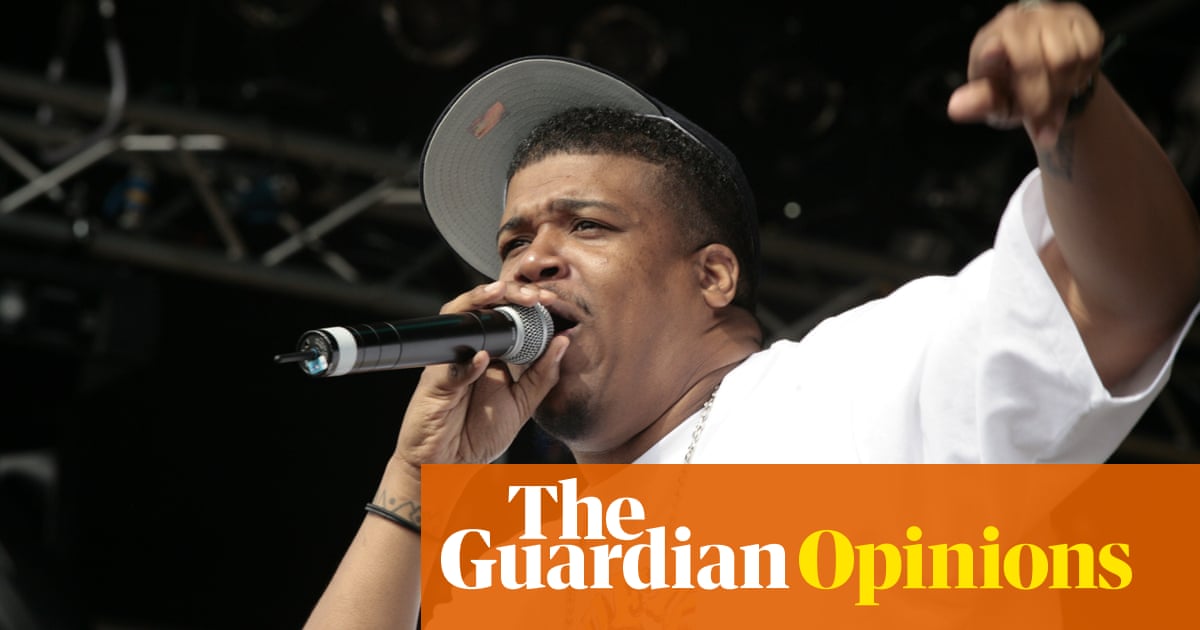
he pandemic might have knocked her momentum, but with her new album Reflection, Loraine James is about to solidify her position as one of the UK’s most brilliant and boundary-pushing electronic producers, meshing IDM – the “intelligent dance music” of artists such as Aphex Twin – with R&B, jazz and drill influences.
Raised in a tower block in Enfield, north London, James has been inspired by electronic music since her mid-teens, allured by IDM greats like Squarepusher and Telefon Tel Aviv: “I was always intrigued by melodic IDM, and wanted to replicate it,” she says, sitting among the craft-beer-sippers in a bar in Hackney Wick, east London. But James has gone far further than mere replication.
“I’m very much a living-room producer,” she says. “I had a keyboard my mum bought when I was younger. From my flat, I could see the London skyline, so I’d jam on the keyboard for hours, overlooking the sky.” James’s tracks have a paradoxical crafted deconstruction: they might initially feel disjointed until you realise that every hit and beat is intentional. She mimics the controlled chaos of free jazz, adopting the dissonance and odd time signatures through beats and glitching synths. “My music is a bit rough,” she says. “A lot of it sounds a bit scrappy, but I don’t re-record it, because I like how it sounds.”
Her 2019 album For You and I garnered widespread critical acclaim, topping end-of-year lists in the Quietus and DJ Mag. James assumed that her Hackney Wick gig, around, around the corner from where she’s sitting today, was destined to be the start of her breakout year. “People only caught on to me when the end-of-year lists came out, so I wasn’t known properly until last year” – and then the pandemic hit. “It’s like I came up and then suddenly disappeared. It’s kind of shit.”
With touring cancelled, James was forced to contemplate the state of her life, hence Reflection. “Sitting there with your thoughts for a year is hard. I was just feeling anxious and down.”
After leaving her teaching assistant job at the height of lockdown, with no knowledge of whether her music career would flourish if she couldn’t play live, James was left in constant worry. Music provided her with some respite – “I was feeling anxious, but I was at my most confident when making music” – so she focused on her craft. “I’ve made more music last year than I’ve ever made in my life. I don’t know what the lockdown did, but it did something!”
With her music before For You and I, “there wasn’t any emotional narrative to it, it was more technical than emotive”. Now, on Reflection’s standout track Self Doubt, James channels the numbness she felt as she rushed to leave a club, feeling anxious after a set. Although James is proud of her “scrappy” sound when producing her tracks, she can’t help but over-prepare for her live sets, which fuels her anxiety. “There have been times when I’ve performed and I’ve left the club straight after,” she says. “I’ve thought that I have been shit or not done as well as I’d wanted, so I’m awkwardly leaving through the crowd, grabbing my suitcase.”
James’s anxiety hasn’t fully left, as she feels pressured to make sure that Reflection is a strong follow-up to her debut. “I want people to like it. Before, I never thought about accolades, but now it’s in the back of my head somewhere.”
This pressure is compounded by the fact that she is one of the few prominent queer Black women in electronic music. “There are not many Black faces in lineups, so the spaces continue to feel white. White people just want to see themselves on the dancefloor.”
James is in a predicament in which a lot of Black alternative musicians find themselves: facing routine exclusion from predominantly white electronic music spaces, while feeling as if she will never be Black enough for Black ones. This transitional position has been tough for her to navigate. “I’m still learning to fully appreciate my Blackness because I’ve always felt like I was different,” she says. “I’ve been called an Oreo” – white on the inside, black on the outside – “and other things.” Despite being noticed by prestigious publications, James wishes she could be recognised by the Black community: “Even the Mobo awards don’t have a rock or electronic genre at all.”
Nevertheless, as she has grown older, James is learning to love herself: “I’ve only stopped questioning my Blackness in the past couple of years,” she says. The project ends with the poignant track We’re Building Something New overlaid by the vocalist Iceboy Violet, who confidently imagines a new world. For James, this sentiment extends past the song. “This pandemic has done something to me. It’s made me relaxed in some ways, and just more comfortable. Like in my music-making: I’m just more confident in it.”












